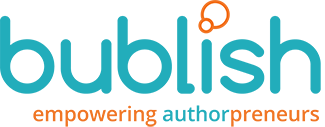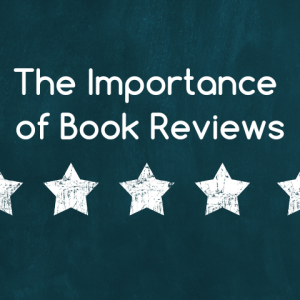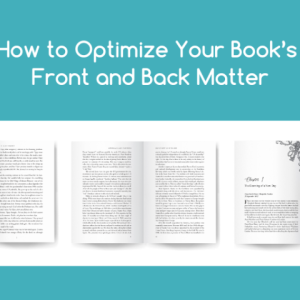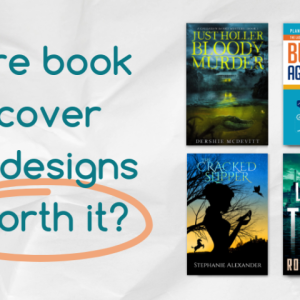As the founder and CEO of Bublish, I like to kick off each year with an overview of current indie publishing trends—and a few predictions. What’s ahead for independent authors in 2023? Exciting innovations and opportunities along with a dash of uncertainty. Here’s what I see:
Trend #1: Despite controversy, artificial intelligence (AI) is here to stay. The good news is AI can help indie authors with many tasks. Writing and language tools like Chat GPT-3 use natural language processing to create decent content quickly. For authors, Chat GPT-3 offers an easy way to generate social and blog content. It can also be used for writing prompts, idea or scene generation, research, and basic writing assignments. We’ve been testing Chat GPT-3 here at Bublish and we’ve been amazed by its capabilities—at least when it comes to the basics. Where it falls short in our experience is with more complex creative endeavors and writing structures. Nuance, emotional layers, vivid descriptions, or surprising plot twists are still beyond Chat GPT-3’s limits right now. As a ghostwriter and developmental editor for more than thirty years, I feel my job is still safe—at least for the near future. 🙂 I do expect copyright questions to arise around AI-generated content, so enter this new world with eyes wide open
AI-generated art has also come a long way. AI-image platforms like Jasper Art, Night Café, and several others can create art, graphics, illustrations, and other images in seconds. This type of AI is also controversial. Questions about copyright have already made headlines. A November 21, 2022 post by the Center for Art Law entitled, “Art-istic or Art-ificial? Ownership and Copyright Concerns in AI-generated Artwork,” stated that “Copyright cannot belong to the AI itself. Section 306 of The Copyright Act protects ‘original works of authorship,’ which implies a human hand in the process. The Act makes the human requirement clear: ‘The U.S. Copyright Office will register an original work of authorship, provided that the work was created by a human being.’ This means that, under the current rules, AI-generated art has no owner.” My advice to authors wishing to experiment with AI-generated art is to start small, educate yourself on the issues, and move into the space slowly.
Trend #2: Audiobook consumption will continue to grow while production costs drop. At Bublish, we globally distribute all book formats—paperbacks, hardcovers, ebooks, and audiobooks. This year, we’re making a bigger push into audiobooks for three reasons:
- Because the audiobook marketplace isn’t as crowded as the ebook and print marketplace, discoverability for indie authors remains very strong in this format.
- Revenue from audiobooks is expected to grow 26.4% every year from 2022 to 2030, reaching $35.05 billion by 2030. With this in mind, authors who publish quality audiobooks can expect a healthy new revenue stream for their titles.
- Thanks to new technology, the cost and time to produce a quality audiobook is coming down.
Computer-generated audiobooks are another area of publishing that has been enriched by AI. Not only can authors now pay a fraction of the cost to have their audiobook read by an AI-generated voice, but soon that AI-generated voice can be your own! On January 9, 2023, ArsTechnica reported that Microsoft researchers had announced “a new text-to-speech AI model called VALL-E that can closely simulate a person’s voice when given a three-second audio sample. Once it learns a specific voice, VALL-E can synthesize audio of that person saying anything—and do it in a way that attempts to preserve the speaker’s emotional tone.” Though Audible says it doesn’t currently accept computer-generated audiobooks, we’re pretty sure there are quite a few on the platform. Many other platforms, including Google Play, Apple Books, and Kobo already accept computer-generated audiobooks. My advice is to consider creating an audiobook this year—whether human or computer-generated.
Trend #3: More authors will sell books directly to readers. This is yet another example of technology making new things possible for authors. Perhaps you’ve visited our own Bublish Books, the bookstore we built on Shopify to showcase and sell indie-published books. We are able to run this bookstore with zero book inventory. Ingram’s print-on-demand technology handles the printing and shipping. For authors, Lulu Xpress offers a similar option with both Shopify and WooCommerce integrations. In most cases, you can integrate a store right into your existing website. To directly sell digital assets like eBooks and audiobooks to consumers, there are popular platforms like Gumroad and Book Funnel.
Trend #4: New ways for authors to further monetize their work continue to emerge. As the publishing sector continues to innovate and barriers to entry continue to fall, indie authors keep finding new ways to monetize their work.
Literary NFTs (Non-fungible Tokens). NFTs allow authors to create special editions of their published books and offer them for sale on the blockchain. Companies like Book.io can help authors sell these “digital collectibles” and open up whole new fan communities while further monetizing their work.
Foreign and Translation Sales. Indie authors are making headway into foreign markets in a number of ways. First, authors are becoming savvier sellers in international markets with pricing and keyword strategies as well as targeted promotions. Second, new opportunities are emerging for translation rights sales. Bublish is currently selling translation rights for a select group of titles and took our first books to the Frankfurt Book Fair this past fall.
Online Courses. Business and self-help authors in particular have created and monetized online courses from their books and then published workbooks as additional sources of revenue. These assets can also help authors achieve professional goals beyond book sales as well as strengthen professional brands.
The good news is there are more and more opportunities for indie authors in 2023. With new technology and innovative programs, the future looks bright. Here’s to a successful year!
Kathy Meis, Founder and CEO of Bublish




